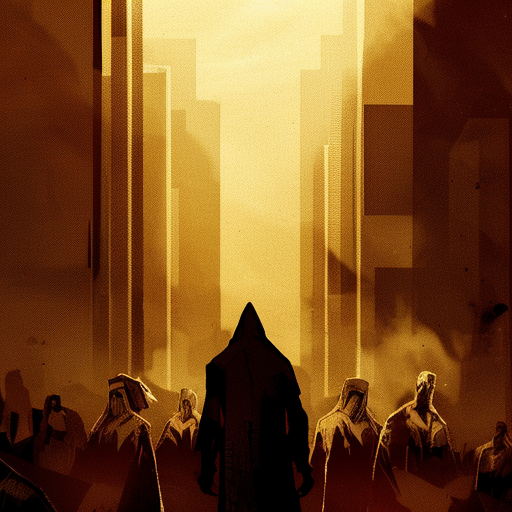One-line Summary:
In “Darkness at Noon,” Arthur Koestler explores the psychological turmoil of Rubashov, a former Communist leader, as he faces a show trial and grapples with the moral implications of his actions.
The Rise and Fall of Rubashov:
“Darkness at Noon” takes place during the height of the Soviet Union’s Great Purge in the 1930s and follows the story of Rubashov, a high-ranking Communist Party member. Once a loyal and influential figure in the Party, Rubashov finds himself arrested and imprisoned, accused of crimes against the state. As he awaits his trial, Rubashov reflects on his past and the choices he made in service of the Party.
Throughout the novel, Koestler delves into Rubashov’s psyche, exploring the internal struggle between his loyalty to the Party and his growing doubts about its methods. As Rubashov interacts with his captors and fellow prisoners, he engages in intense philosophical debates about the nature of power, morality, and the individual’s role in society.
The Power of Ideology:
One of the central themes in “Darkness at Noon” is the power of ideology and its ability to manipulate individuals and societies. Rubashov, once a fervent believer in the Communist cause, begins to question the Party’s methods as he witnesses the brutal consequences of its policies. He grapples with the realization that the Party’s pursuit of power has come at the expense of individual lives and freedoms.
Koestler explores the psychological toll of living under an oppressive regime, where loyalty to the Party is valued above all else. Rubashov’s internal struggle reflects the broader conflict between personal morality and ideological loyalty, highlighting the sacrifices individuals are willing to make for the sake of a greater cause.
The Show Trial and Moral Dilemmas:
As Rubashov’s trial approaches, he faces a moral dilemma: should he confess to crimes he did not commit in order to save his own life, or should he maintain his innocence and face the consequences? The novel delves into the psychological torment Rubashov experiences as he grapples with this decision.
Koestler uses the show trial as a vehicle to explore the nature of justice and the manipulation of truth for political purposes. The trial is not about determining guilt or innocence but rather about reinforcing the Party’s power and control. Rubashov’s struggle to reconcile his personal ethics with the demands of the Party adds a layer of complexity to the narrative, highlighting the moral gray areas that arise in oppressive regimes.
Key Takeaways:
- The power of ideology can blind individuals to the moral implications of their actions.
- Living under an oppressive regime can lead to internal conflicts and psychological turmoil.
- The pursuit of power often comes at the expense of individual lives and freedoms.
“The old saying: ‘The end justifies the means’ is false. The end is pre-existent in the means.”
In “Darkness at Noon,” Arthur Koestler masterfully explores the psychological turmoil of a former Communist leader as he faces a show trial and grapples with the moral implications of his actions. Through the character of Rubashov, the novel delves into the power of ideology, the sacrifices individuals make for a greater cause, and the manipulation of truth for political purposes. Koestler’s thought-provoking work serves as a stark reminder of the moral complexities that arise in oppressive regimes and the importance of individual conscience in the face of power.












